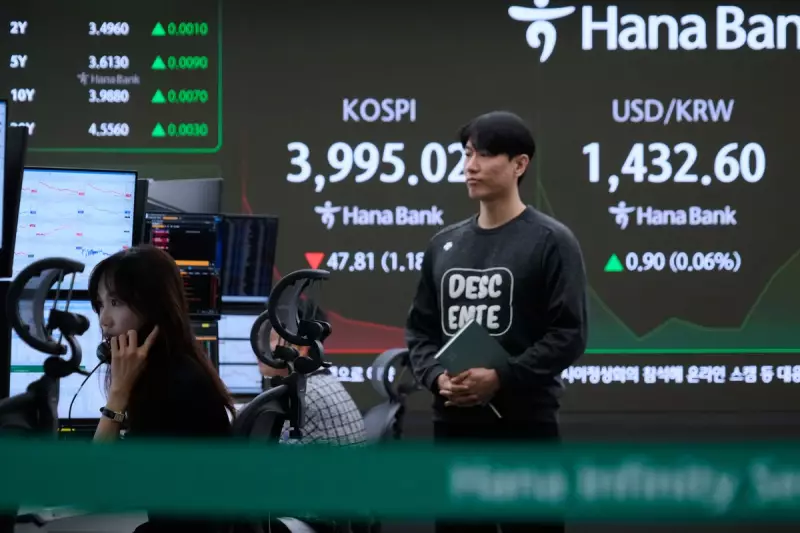
Asian financial markets experienced significant turbulence as former US President Donald Trump's aggressive trade policy statements sparked fears of renewed economic conflict between Washington and Beijing.
The Shanghai Composite Index, China's primary stock benchmark, fell sharply during trading, reflecting investor anxiety over potential trade disruptions. Market analysts reported widespread selling pressure across multiple sectors with particular weakness in export-oriented industries.
Market Reaction Across Asia
The ripple effects extended beyond China's borders, with other major Asian markets showing notable declines. Tokyo's Nikkei index and Hong Kong's Hang Seng both registered losses as traders digested the implications of potential tariff escalations.
"The market is clearly pricing in increased uncertainty," noted a senior analyst at a leading Hong Kong financial institution. "Trump's history of unpredictable trade policy creates genuine concern among international investors with exposure to Chinese markets."
Historical Context of Trade Tensions
During his presidency, Trump implemented sweeping tariffs on Chinese goods, triggering a prolonged trade war that disrupted global supply chains and slowed international economic growth. His recent comments suggest a potential return to similar tactics if he were to regain political power.
Financial institutions across the region have begun contingency planning for various scenarios, with some recommending clients reduce exposure to vulnerable sectors until the political landscape becomes clearer.
Long-term Implications
Economists warn that sustained trade tensions could have profound consequences for global economic recovery efforts, particularly as nations continue to navigate post-pandemic challenges. The uncertainty comes at a delicate time for China's economy, which already faces domestic headwinds including property market concerns and fluctuating consumer demand.
Market participants will be closely monitoring political developments in the United States, with many expecting continued volatility in Asian markets until trade policy directions become more predictable.





